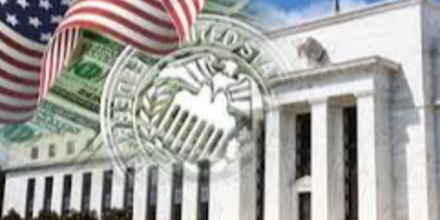Wintermute Urges SEC to Exempt Network Tokens from Securities Rules
Contents
Toggle- Quick Breakdown:
- Call for Clear Guidance
- Distinction from Securities
Quick Breakdown:
- Wintermute asks the SEC to confirm that network tokens like Bitcoin and Ether are not securities.
- Misclassifying tokens could hinder liquidity, raise trading costs, and push activity offshore.
- The firm urges support for both DeFi and centralized tokenized markets to foster U.S. crypto innovation.
Trading firm and market maker Wintermute has formally urged the U.S. Securities and Exchange Commission (SEC) to clarify that network tokens such as Bitcoin and Ether should not be classified as securities. The appeal came in response to the SEC’s request for industry feedback on digital asset regulation.
Call for Clear Guidance
Wintermute argued that “network tokens,” which are essential to the operation of decentralized networks, differ fundamentally from financial products. The firm stressed that these tokens are technical inputs, not investment contracts, and therefore fall outside the scope of securities laws.
Citing Bitcoin (BTC) and Ethereum (ETH) as prime examples, Wintermute warned that classifying them as securities could lead to severe consequences for the U.S. crypto market. Such a move, it said, would trigger burdensome compliance requirements for every token transaction, reduce liquidity, increase costs, and drive blockchain innovation offshore.
Today, Wintermute submitted feedback to the SEC’s Crypto Task Force on tokenized securities
We set out recommendations in three areas we see as critical for liquidity providers to support the adoption of tokenized securities ↓
— Wintermute (@wintermute_t) September 3, 2025
“Misclassification risks stifling innovation and pushing development outside the United States,”
the company wrote, adding that clarity would help maintain U.S. competitiveness in the global crypto economy.
Distinction from Securities
The firm emphasized that network tokens should be treated more like commodities, collectibles, or real estate l all of which can be purchased for investment purposes without being labelled as securities. Wintermute said this distinction is crucial even if tokens are later traded for profit or used in fundraising rounds.
In addition to network tokens, Wintermute called on the SEC to adopt policies that allow decentralized finance (DeFi) to grow alongside centralized markets for tokenized securities. Supporting both avenues, the company argued, would expand investor options, foster innovation, and strengthen the U.S. position in global markets. Beyond its policy push, Wintermute continues to expand its own market footprint. The firm recently secured a Bitcoin-backed credit facility from Cantor Fitzgerald, signaling its role in the investment bank’s newly launched $2 billion Bitcoin financing business.
Disclaimer: The content of this article solely reflects the author's opinion and does not represent the platform in any capacity. This article is not intended to serve as a reference for making investment decisions.
You may also like
The $150,000 Collective Illusion: Why Did All Mainstream Institutions Misjudge Bitcoin in 2025?
There is a significant discrepancy between the expected and actual performance of the bitcoin market in 2025. Institutional forecasts have collectively missed the mark, mainly due to incorrect assessments of ETF inflows, the halving cycle effect, and the impact of Federal Reserve policies. Summary generated by Mars AI. The accuracy and completeness of this summary are still being iteratively improved by the Mars AI model.

JPMorgan Chase: Oracle's aggressive AI investment sparks concerns in the bond market.
Aster launches Shield Mode: a high-performance trading protection mode designed for on-chain traders
This trading feature, as an innovative protection mode, is dedicated to integrating the full 1001x leveraged trading experience into a faster, safer, and more flexible on-chain trading environment.

Crypto industry leaders gather in Abu Dhabi, calling the UAE the "new Wall Street of crypto"
Banding together during the bear market to embrace major investors!
